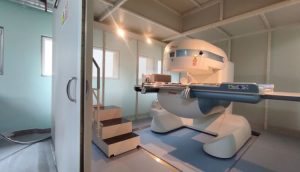Officially Republic of North Macedonia, it is a state on the Balkan Peninsula with Skopje as capital. The territory currently governed by Macedonia was previously the southern part of Yugoslavia, whit borders established at the end of World War II when socialist Yugoslavia recognized the People's Republic of Macedonia as a separate Nation within Yugoslavia. Renamed the Republic of Macedonia on 8 September 1991, it peacefully seceded from Yugoslavia without further territorial changes.
Until 2019, the official name was the Republic of Macedonia, involving the country in a long-standing dispute with Greece, which ended in June 2018 with the Prespa Agreement. In January 2019, the Macedonian Parliament approved a constitutional reform to adopt the name of North Macedonia, thus being able to join NATO under the new name and paving the way for accession to the European Union.
North Macedonia has a small and open economy, vulnerable to European economic developments and dependent on regional integration for sustainable growth.
The country is a member of the United Nations, NATO, OSCE, Council of Europe, World Trade Organization and Central European Free Trade Agreement (CEFTA).
Accession process – essential timeline [1]
March 2004 – Application to EU membership
December 2005 – EU recognizes to North Macedonia the candidate country status
March 2020 – Following the Prespa Agreement, the EU Council opens accession negotiations
July 2022 – In parallel with Albania's path, accession negotiations are launched for North Macedonia
 Early in 1996 a "Memorandum of Understanding on Technical Cooperation" was signed between the Italian and Macedonian Foreign Ministries. According with the document, both parties expressed their willingness to carry out initiatives through non-profit organizations supported by Italy and operating in various areas such as promotion and support to small and medium-sized enterprises, agriculture, processing and marketing food products, infrastructure, health services, environmental protection, culture, education and research.
Early in 1996 a "Memorandum of Understanding on Technical Cooperation" was signed between the Italian and Macedonian Foreign Ministries. According with the document, both parties expressed their willingness to carry out initiatives through non-profit organizations supported by Italy and operating in various areas such as promotion and support to small and medium-sized enterprises, agriculture, processing and marketing food products, infrastructure, health services, environmental protection, culture, education and research.
Italian availability to support North Macedonia population affected by the effects of the war was re-affirmed by President Scalfaro in 1999 following a visit to Skopje, driving to a bilateral agreement for the construction of infrastructures in the Radika river valley.
In 2021, AICS Tirana assumed responsibility for development cooperation initiatives in North Macedonia.
In 2023, a soft loan is on-going for a financial commitment of EUR 1.4 million, aims at supporting Macedonian Ministry of Health through the supply and installation of medical equipment in the framework of a large programme devoted to Management and Modernization of Biomedical Technologies.
